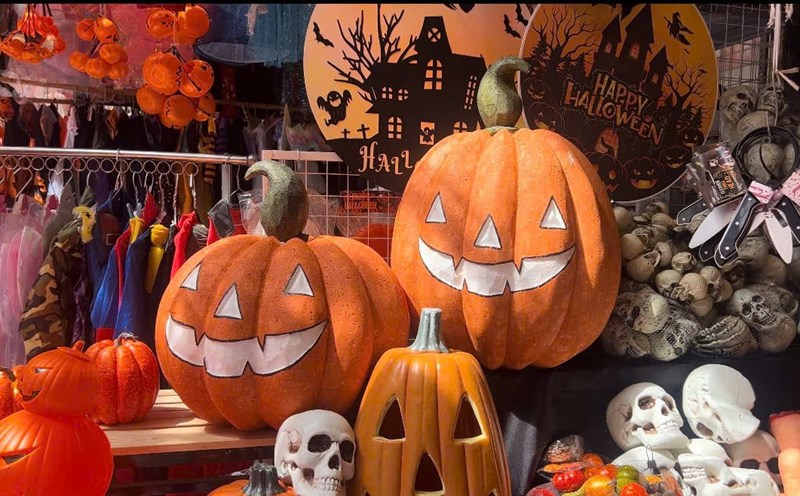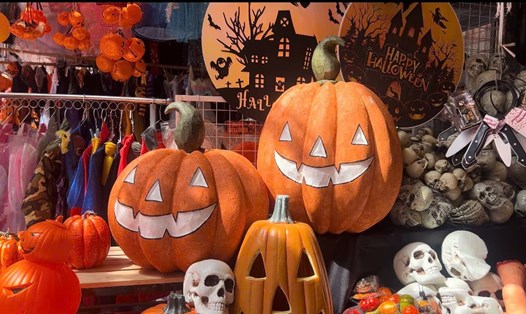For many adults who have experienced many Halloween seasons, they easily forget that this festival is really scary and can be confusing for young children.
Studies have shown that seeing masked faces, hearing screams, and witnessing groups of people dressed as ghosts ordecorps can actually frighten children and lead to prolonged fears.
Parents should not subjectively think that children enjoy Halloween costume festivals.
According to SCMP, Halloween originated thousands of years ago, originating from the ancient Celtic festival of Samhain.
It is believed that on November 1, the souls of the dead will return to roam among the living. To ward off these spirits, the living will dress up as scary characters the night before.
The modern practice of "trick-or-treat" (for candy or chewing) also has a scary origin. It is believed to have started with the "souling" activity - going from house to house asking for "soul cakes" in exchange for prayers for the dead in prison.
Sharing with SCMP, according to Dr. Quratulain Zaidi, a clinical psychologist and founder of MindNLife in Hong Kong (China), fear affects adults and children differently because the brains of adults have developed much more perfectly than those of children.
According to the doctor, in the brain, the amygdala discovers whether fear is real or not. The hippocampus manages short-term memory and is associated with a fear response. Both play an important role in releasing stress hormones such as cortisol and adrenaline.
These hormones act on the prefrontal cortex to create a reaction - which can be an emotion or an action.
Statistics show that about 1/100 children have masklophobia. Nearly 50% of children are or have been afraid of the dark (nyctophobia).
According to Dr. Zaidi, he believes that painful memories formed after a scary experience can leave lasting effects if not handled properly. Children are especially vulnerable to fear because their brains are still developing, their ability to understand the world is limited and they cannot clearly distinguish between real and virtual.
Given this psychological state, SCMP suggests some ways to help children prepare for the upcoming Halloween season.
First, parents need to explain to their children that feeling scared is normal, even though Halloween is just a "fake illusion".
Parents need to let their children know that they can not participate if they feel too scared.
Try outfits before the festival - both children's and parents' outfits, including scary makeup.
Watch books and photos together to prepare children mentally about the types of masks and costumes they can meet.
If your child is still very young, complete the candy asking before dark.







